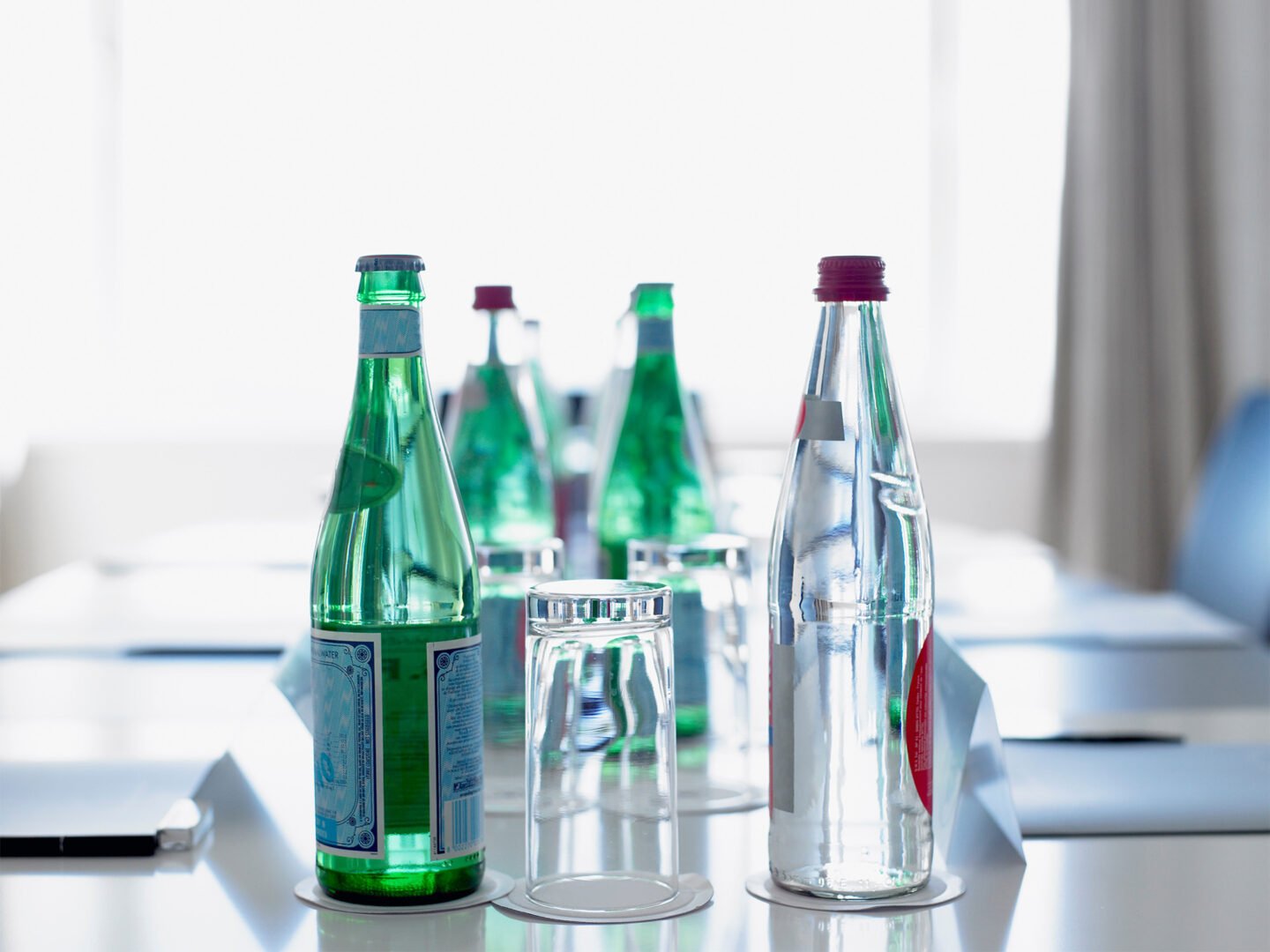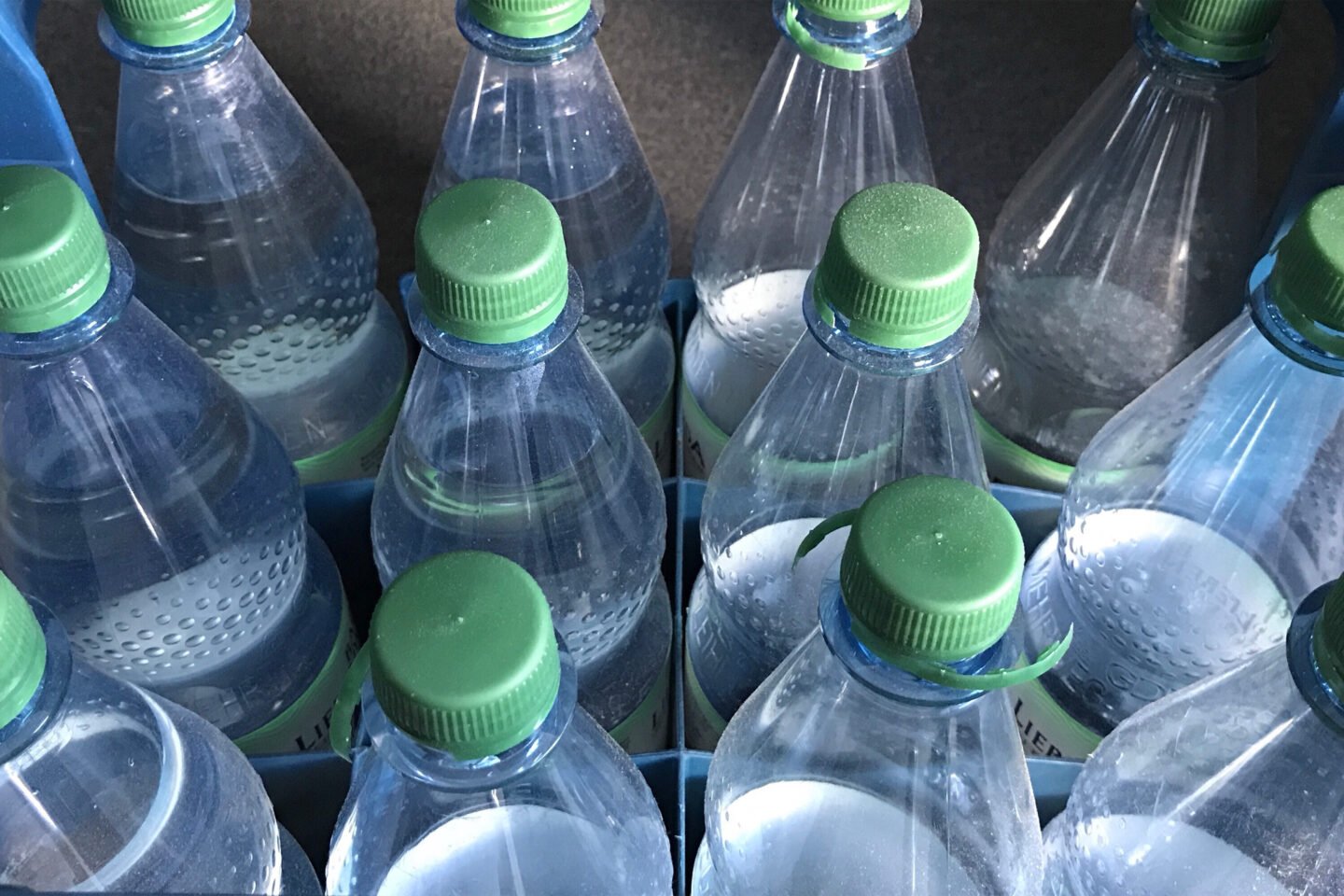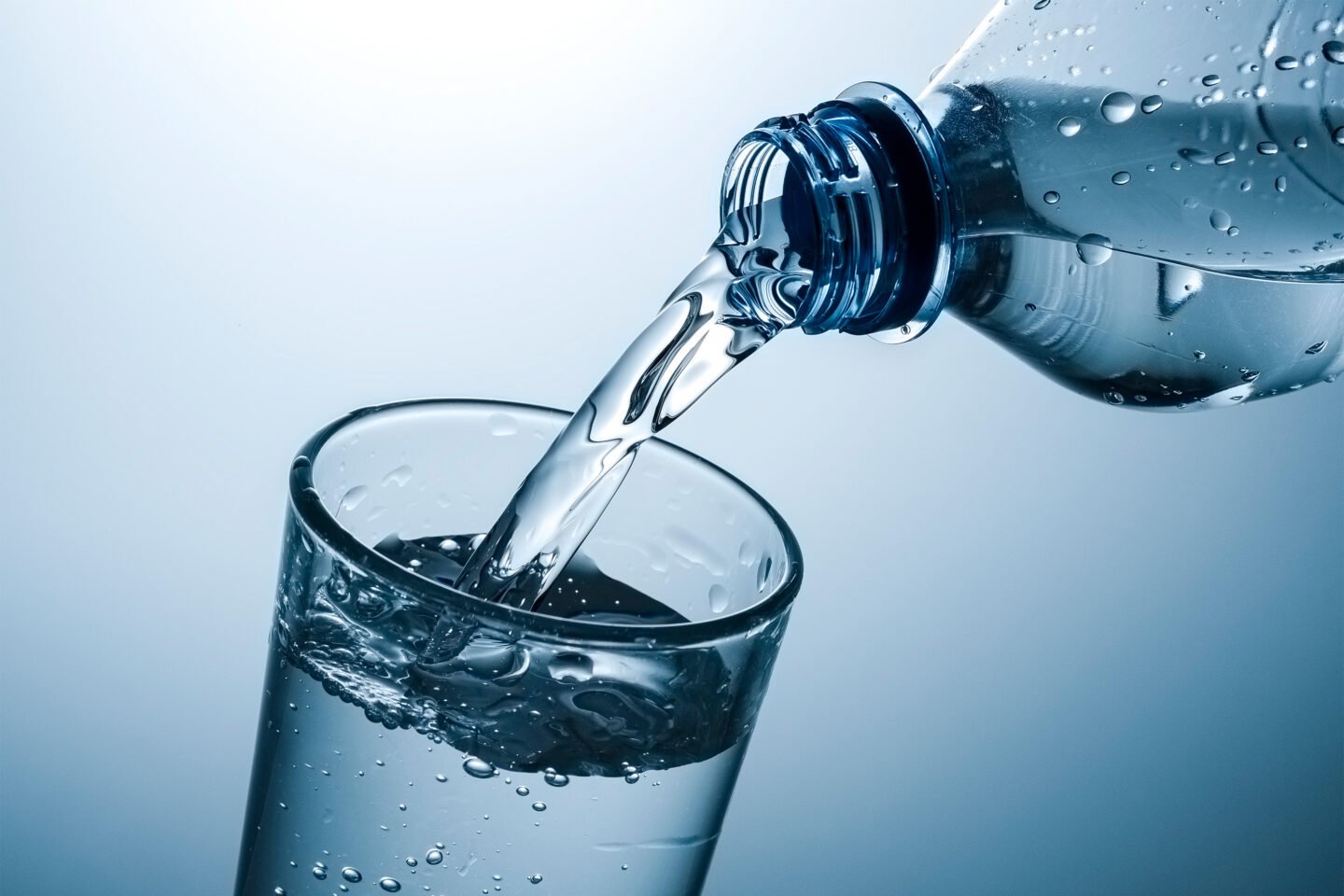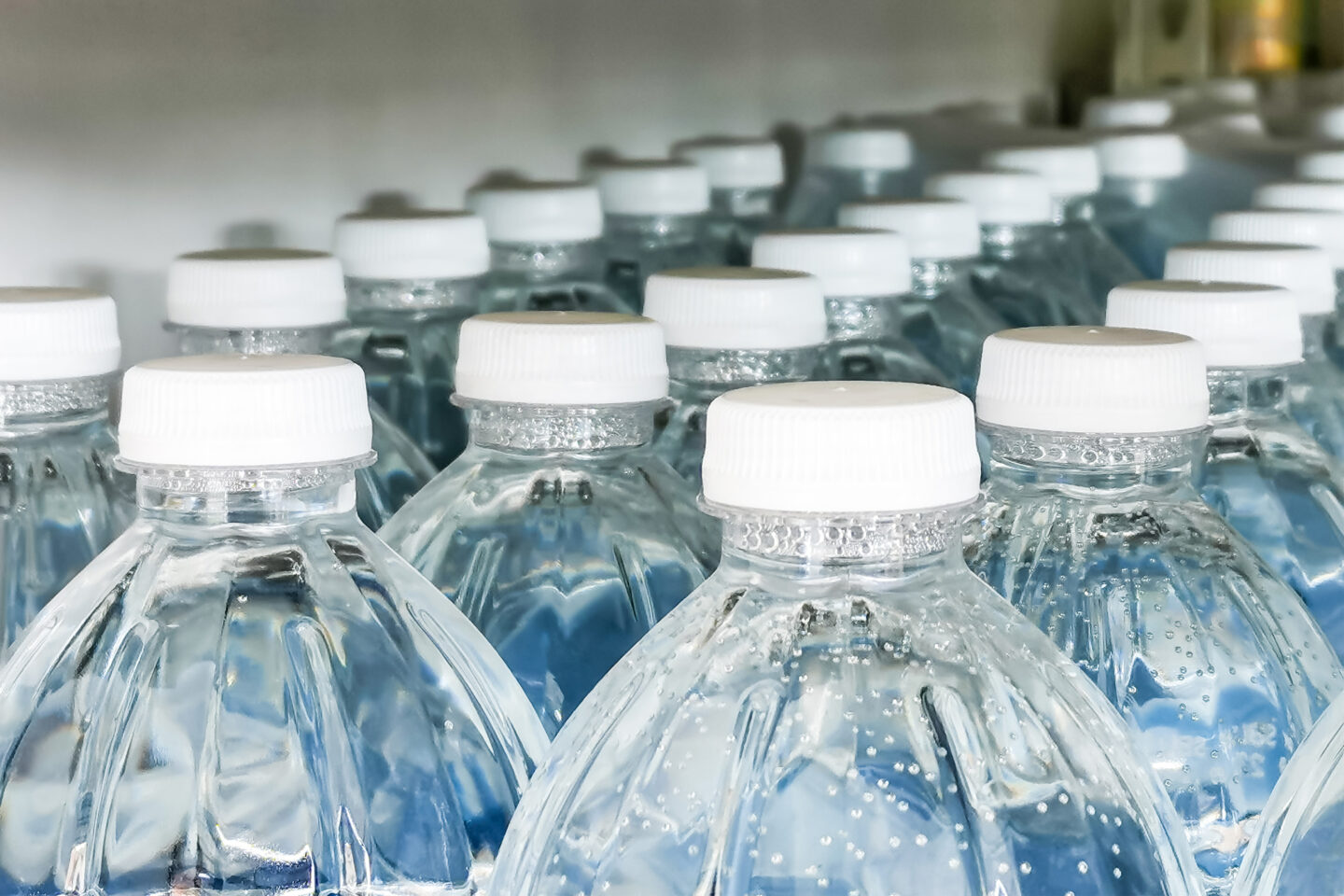Most of the human body is made up of water, so it’s no wonder it’s one of the most important liquids we should consume. Not drinking enough water can lead to chronic dehydration, general fatigue, and more severe health conditions.

On the other hand, an adequate amount of water can help you feel more energized and even reduce the symptoms of acid reflux and GERD. But are all water types created equal? For example, can bottled water cause acid reflux? Are there better alternatives?
Table of Contents
Can Bottled Water Cause Acid Reflux?
As long as you choose regular, unflavored bottled water, it’s nearly impossible to develop acid reflux or GERD symptoms from it. Most brands of bottled water use well water, distilled water, mineral water, or spring water. All of these help you stay hydrated and won’t cause acid reflux symptoms. Some of these might even provide you with essential minerals that contribute to good health.
Is bottled water healthy?
Generally, bottled water is healthy. It’s filtered, so it doesn’t contain any bacteria, and it’s also not contaminated by anything like tap water might be. Because of that, if you live in regions where drinking tap water is ill-advised, choosing bottled water might be the best option for you.
When choosing the type of bottled water you want to drink, it’s important to look at the packaging. Most bottled water brands use plastic bottles, which, in some cases, might release toxins into the water if you store them for a long period of time.

Because of that, it’s important to check the expiration date on the neck of the bottle. It might also be a good idea to choose water in glass bottles or carton boxes. These are healthier and better for the environment.
Some bottled water brands sell mineral or spring water, which contains various minerals, such as salts and sulfur compounds, that contribute to good health and various bodily processes. As a result, if you’re looking for the healthiest drink options with nutrients, these water types are the best.
In addition, drinking water, including bottled, instead of coffee, tea, or soda has been shown to reduce GERD and acid reflux symptoms. So, along with following a healthy, balanced diet rich in fruit, veggies, and whole grains, drinking bottled water can help you control your symptoms and even limit them. This can be particularly beneficial for people struggling with severe cases of acid reflux or GERD.
Is drinking bottled water every day bad for you?
Depending on where you live, bottled water might be your only choice if you can’t drink tap water. While some areas have safe-to-drink tap water, some places have contaminated water, so it’s best to buy bottled water.
As a result, it’s perfectly safe to drink bottled water every day, even if you can drink tap water. Bottled water doesn’t contain any chemicals or other harmful substances, so it can help you stay hydrated in a safe way.
While most types of bottled water are healthy, it’s best to avoid carbonated and sparkling water if you suffer from acid reflux, or GERD. Studies don’t show a concrete link between the symptoms of acid reflux and carbonated water.

Still, in general, carbonated drinks distend your stomach, which puts additional pressure on your digestive system. Because of that, if your stomach is very sensitive and susceptible to inflammation, you might be better off without carbonated water and other beverages, especially if they’re sweetened.
What’s more, if you drink bottled water every day, it’s best to choose plain water and avoid fruit-flavored options, especially citrusy ones. These contain artificial flavoring, which has acid-forming properties and can worsen your acid reflux and GERD symptoms. There are barely any commercially-produced fruity bottled waters that aren’t acidic, so it’s best to avoid them altogether.
Is bottled water better for acid reflux than tap or alkaline water?
Generally, the pH level of tap water ranges between 6.5-8.5, depending on the location and climate, and the same goes for most bottled waters. On the other hand, alkaline water tends to have a higher pH level, reaching almost 9.
This type of water also contains alkaline minerals that work as antioxidants and may help you reduce the severity and frequency of your acid reflux and GERD symptoms.
Aside from that, most research suggests that most people with acid reflux and GERD should be perfectly alright with drinking regular, either bottled or tap water.

Alkaline water isn’t a treatment for acid reflux or GERD, and it can only temporarily alleviate the symptoms. As a result, you should consume mostly regular water and not waste your money on buying alkaline water every day.
Some doctors also recommend drinking regular bottled water or tap water and infusing it with alkaline-forming fruits, such as grapefruit, lemons, limes, mangos, papayas, cherries, or cranberries.
While these might taste rather sour and bitter, they are actually alkaline when digested and metabolized in your stomach, making them good for people struggling with acid reflux, or GERD. When infusing your water with fruit, though, it’s important not to add too much fruit, as it might irritate your esophagus.
What’s more, when it comes to all water types, some people might find that chugging a full glass of water in one sitting can cause acid reflux and GERD flare-ups. This often happens to people suffering from refractory acid reflux, which is a type of acid reflux that persists despite treatment.
In that case, everything may cause symptoms, so it’s best not to consume too much food or liquid in one sitting. If you suffer from this type of reflux, it’s still important to drink water, though; just make sure to take small sips.
As long as you choose plain, uncarbonated options, bottled water shouldn’t cause any acid reflux or GERD symptoms. Bottled water is filtered, making it a healthy drink that can help you stay hydrated without adding any calories.
There are also many versions of bottled water, such as mineral and spring, which contain additional minerals essential for good health. Because of that, you can’t go wrong with including bottled water in your diet.
